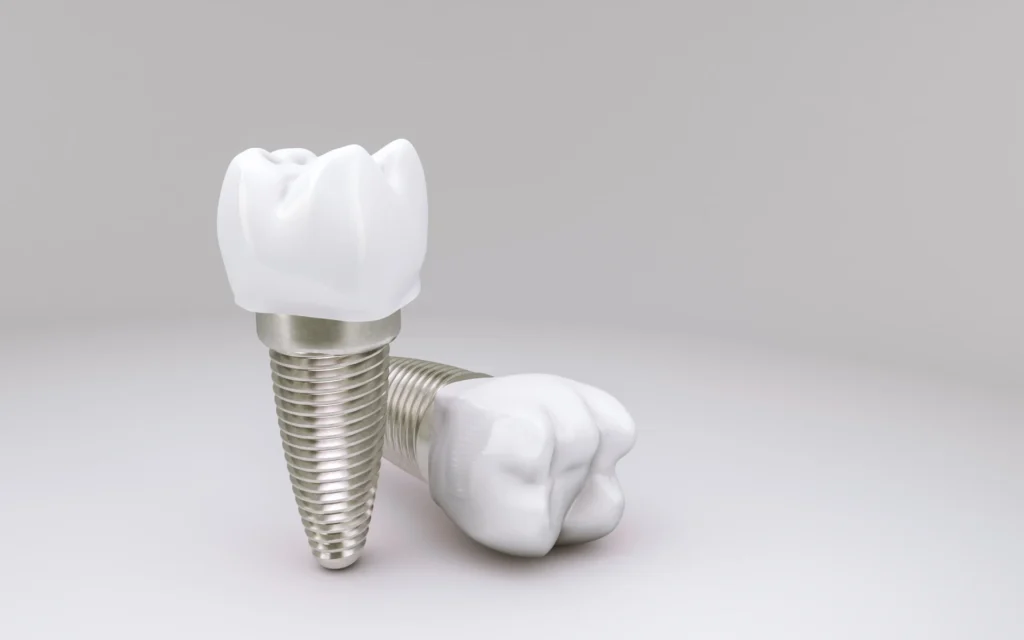Exploring Periodontics Dentistry: A Comprehensive Guide
What is Periodontics Dentistry?
This specialized branch of dentistry focuses on the health of your gums and the structures that support your teeth. It deals with diagnosing, preventing, and treating gum disease, also known as periodontal disease, which affects the gums and bone surrounding the teeth.
Periodontists, who are dentists with additional training in periodontics, specialize in providing treatments such as scaling and root planing to remove plaque and tartar from below the gum line, as well as surgical procedures like gum grafts and bone grafts to restore lost gum and bone tissue.
Overall, it plays a crucial role in maintaining the strength of your gums and preventing tooth loss, ensuring a solid foundation for a healthy smile.
The Role of Periodontists in Treating Gum Disease
Periodontists play a crucial role in treating gum disease and maintaining oral health. They undergo extensive training beyond that of a general dentist, often spending three additional years in periodontal education.
With their in-depth knowledge of periodontal treatment and surgical procedures, periodontics professionals are equipped to address various gum-related issues effectively. They specialize in treating periodontal pockets, spaces between the gums and teeth where bacteria can accumulate and cause inflammation.
Periodontics specialists also perform surgical procedures to restore gum and bone tissue lost due to gum disease. Additionally, they are skilled in dental implant procedures.
Through regular checkups and treatment, periodontists help patients maintain healthy gums and teeth, reducing the risk of complications such as infections and tooth loss. Their expertise and specialized care are essential in promoting oral health and well-being.
Periodontal Disease: Causes, Symptoms, and Effects
Periodontists play a crucial role in treating gum disease and maintaining oral health. They undergo extensive training beyond that of a general dentist, often spending three additional years in periodontal education.
With their in-depth knowledge of periodontal treatment and surgical procedures, periodontics professionals are equipped to address various gum-related issues effectively. They specialize in treating periodontal pockets, spaces between the gums and teeth where bacteria can accumulate and cause inflammation.
Periodontics specialists also perform surgical procedures to restore gum and bone tissue lost due to gum disease. Additionally, they are skilled in dental implant procedures.
Through regular checkups and treatment, periodontists help patients maintain healthy gums and teeth, reducing the risk of complications such as infections and tooth loss. Their expertise and specialized care are essential in promoting oral health and well-being.
Diagnosis and Treatment of Periodontal Disease
Several tools and techniques may be used to assess the strength of the gums and supporting structures of the teeth:
01
Visual Examination: The dentist or periodontist will visually inspect the gums for signs of inflammation.
02
Probe Measurements: A periodontal probe, a small, thin instrument, measures the depth of the periodontal pockets – spaces between the gums and teeth.
03
X-rays: Dental X-rays provide images of the teeth and supporting bone structures, allowing the dentist to detect any abnormalities not visible during a visual examination.
04
Gum Tissue Biopsy: In cases with signs of oral lesions or abnormal growths, a biopsy may be performed to evaluate the tissue for signs of illness or infection.
05
Saliva Testing: Some dentists may use saliva tests to assess the bacteria levels, providing additional information for treatment planning.
By utilizing these tools and techniques, general dentists and periodontics specialists can accurately diagnose periodontal disease and develop personalized treatment.

The Scope of Services Offered by Periodontists
Periodontists offer various services to diagnose, treat, and prevent gum disease and related conditions. Some of the critical services provided by periodontists include:
Diagnosis and treatment of gum disease: Periodontists are experts in diagnosing various stages of gum disorder, including gingivitis and periodontitis.
Scaling and root planing: This deep cleaning removes plaque and tartar below the gum line and smoothens the tooth roots to prevent bacterial buildup.
Periodontal surgery: Periodontists perform surgical procedures, including flap surgery, pocket reduction surgery, and grafting.
Dental implant placement: Periodontics specialists are trained to surgically place dental implants and artificial tooth roots to support dental prosthetics such as crowns, bridges, and dentures.
Gum grafting: This procedure involves taking tissue from elsewhere in the mouth or using donor tissue to restore gum tissue lost due to gum recession or periodontal disease.
Bone grafting: Periodontics professionals perform bone grafting procedures to regenerate bone tissue in the jaw.
Maintenance therapy: Periodontists provide ongoing maintenance care, including regular cleanings and checkups, to monitor gum health and prevent the recurrence of gum inflammation.
Cosmetic periodontal procedures: Periodontists may offer cosmetic treatments such as gum contouring to improve the gum line's appearance and enhance the smile's aesthetics.
Overall, periodontists specialize in diagnosing and treating gum-related issues, providing comprehensive care to maintain and restore gum health and function.

Dental Implants: A Revolutionary Solution
Implant dentistry offers innovative solutions for replacing missing teeth with dental implants. These implants are like superheroes in the world of smiles! It can feel sad to lose a tooth, but dental implant surgery is here to make things right. They’re like tiny anchors that go into your jawbone, holding replacement teeth snug as a bug.
These new teeth look and feel like the real deal so you can smile, chat, and munch on your favorite foods without worry. Plus, they’re super strong and can last a lifetime if you take good care of them. Patients may require multiple implants to restore a complete smile and chewing function.
Say goodbye to worrying about missing teeth and hello to a smile ready to light up the room! Dental implants are unique, giving you back your smile and confidence.
Gum and Bone Grafts: Restoring Bone and Gum Tissue for Implant Placement
Sometimes, getting implants requires extra support to ensure everything stays put. That’s where gum and bone grafts come in.
During a simple surgical procedure, your dentist or periodontist can take a small piece of gum or bone from another part of your mouth or use donor material to fill in any gaps and strengthen the area where your implant will go.
A gum graft procedure can help restore receding gums and improve oral well-being. With these grafts, your smile can return to its sparkling best, and you’ll be ready to show it to the world!

Periodontal Surgery: Addressing Deep Pockets and Bone Loss
When gum disease gets severe, it can cause deep pockets between your teeth and gums and even lead to bone loss. But don’t worry; this procedure is here to save the day.
During this procedure, your dentist or periodontist works magic to clean out deep pockets, remove harmful bacteria, and even repair the bone if needed. With periodontal surgery, your smile can return to its healthy, happy self in no time, ready to take on the world confidently!
Collaboration with General Dentists
General dentists typically provide primary dental care, including routine checkups, cleanings, and essential treatments like fillings and extractions. On the other hand, periodontics specialists specialize in preventing, diagnosing, and treating gum illness and other periodontal issues, as well as procedures like gum grafts and dental implant placement.
By working together, they can provide comprehensive care to their patients. General dentists may refer patients to periodontics specialists for specialized gum disease treatments or tooth replacements requiring advanced training and expertise.
Periodontists, in turn, can collaborate with general dentists to ensure that their patients receive appropriate follow-up care and maintenance to preserve the results of their treatments.
This collaborative approach allows for a more holistic and integrated approach to ensuring patients receive the best therapy and long-term well-being. Providing exceptional patient care is a priority for dental professionals in implant dentistry.
Laser Therapy in Periodontics: Advancements in Treatment Techniques
This therapy in periodontics is like an upgrade for treating problems! Instead of using traditional tools like scalpels, doctors now use lasers to zap away bacteria and gum tissue, causing trouble.
It’s like a gentle beam of light that works on your gums, helping them heal faster and with less pain. Laser therapy is super precise, so it can target only the areas that need healing without affecting the surrounding area. Plus, it’s quick and usually doesn’t require any stitches.
In Conclusion
Early detection and intervention are essential in managing gum disease and preventing further progression and complications. Therefore, it is essential to attend regular dental checkups to ensure early detection and prompt treatment of periodontal disease. Compassionate care tailored to each patient’s needs is a cornerstone of dental practice.